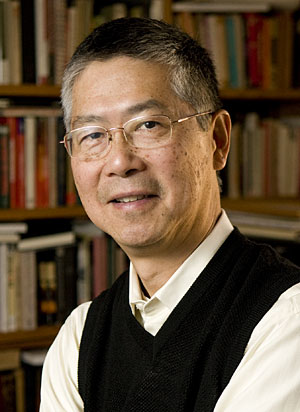The Committee of 100 is excited to induct Dr. Gordon H. Chang, Director of the Center for East Asian Studies at Stanford University and Professor of American History, in to our membership. C-100 became acquainted with Dr. Chang’s work upon learning of one of his major projects, “Chinese Railroad Workers in North America” at Stanford University, which aims to give voice to Chinese railroad workers who played a crucial role in completing the first transcontinental railroad line in the United States. For the project, Stanford University was honored at the 2014 Committee of 100 Annual Gala Dinner and Awards Ceremony.
 Dr. Gordon H. Chang, Committee of 100 member (2015)
Dr. Gordon H. Chang, Committee of 100 member (2015)
Dr. Chang has continuing interests in U.S.-China relations and in the political and cultural history of Asian Americans. He is affiliated with the Center for Comparative Studies in Race and Ethnicity, the American Studies Program, and the International Relations Program at Stanford University . He is particularly interested in America in the world and the historical connections between race and ethnicity in America and foreign relations, and explores these interconnections in his teaching and scholarship. He is a recipient of both Guggenheim and ACLS fellowships, and has been a three-time fellow at the Stanford Humanities Center.
This spring, the Committee of 100 hosted an event featuring Dr. Chang as keynote speaker to present his most recent publication, Fateful Ties: A History of America’s Preoccupation with China, which explores the history of U.S.-China relations.
Dr. Chang is the editor or author of a number of essays and books, including American Asian Art: A History, 1850– 1970 , Chinese American Voices: From the Gold Rush to the Present (2006) , Asian Americans and Politics: An Exploration (2001), Morning Glory, Evening Shadow: Yamato Ichihashi and His Wartime Writing, 1942-1945 (1997), and Friends and Enemies: The United States, China, and the Soviet Union, 1948-1972 (1990). Chinese American Voices is a collaboration with two other historians and presents the words of Chinese Americans from the mid-19th century to the recent past. Dr. Chang also helped complete a collection of the last work of Yuji Ichioka, the pioneer historian of Japanese Americans , who died a few years ago.